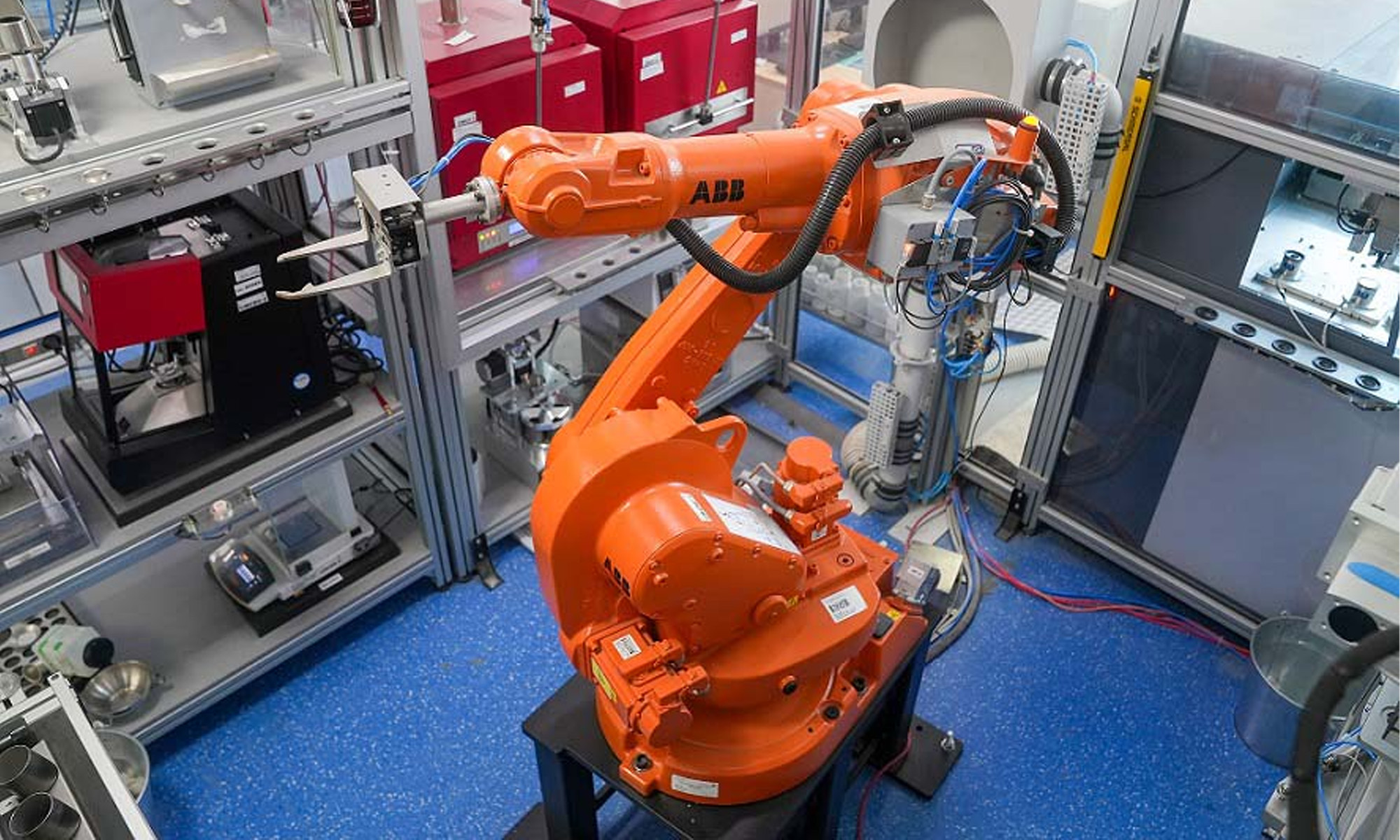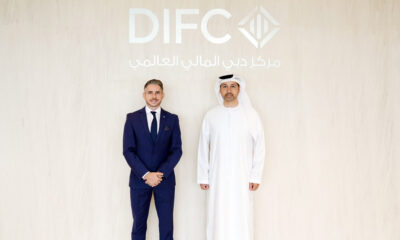News
Dubai Municipality To Test Construction Materials Using AI Robots
The technology shortens testing from 4 days to 8 minutes, according to experts.

The Central Laboratory of Dubai Municipality is now using robots employing X-Rays and AI technology to conduct the automated chemical analysis of various construction materials, including cement.
Testing is linked to a smart laboratory platform, allowing engineers to receive inspection reports through smartphones and other mobile devices. The new system will improve the quality of the Municipality’s testing services to meet top international construction standards.
.@DMunicipality leverages AI robots to test construction materials used across #Dubai, resulting in a shortened testing period of 8 minutes, down from 4 working days, and an increased daily ratio of samples tested by 650%.https://t.co/iTzhfv9jUT pic.twitter.com/VqJ6Dp31zV
— Dubai Media Office (@DXBMediaOffice) August 16, 2023
Hind Mahmoud Ahmed, Acting Director of the Dubai Central Laboratory Department at Dubai Municipality, explained, “The robots utilize X-rays to precisely carry out chemical analysis of construction materials and cement products used, which allows for effectively meeting the requirements of the construction sector. The technology shortens the duration of the tests from 4 days to 8 minutes, with a record daily increase in the ratio of samples examined to 650 percent, compared to the previous pre-application situation”.
Also Read: StarzPlay Launches Free-To-Play Fantasy Sports Game In MENA
As well as helping to meet stringent safety standards, cement testing also impacts sustainability. Inspection of various mixtures can quickly ascertain their lifespan, helping city planners make better choices when commissioning new buildings. What do you think of the new AI robots?
News
Alienware Just Announced Six New Gaming Monitors
The new models include three QD-OLED and three budget-friendly QHD options, expanding the company’s lineup for all gamers.

Alienware has just updated its gaming monitor lineup with six new additions, including the highly anticipated Alienware 27 4K QD-OLED Monitor. The latest wave of releases is set to reach more gamers than ever, offering high-end QD-OLED displays alongside more budget-friendly options.
The latest displays clearly show that the company is doubling down on QD-OLED with three new models sporting the technology. A redesigned Alienware 34 Ultra-Wide QD-OLED Monitor is also making a return, further refining what is already a fan-favorite display.
A Unified Design: The AW30 Aesthetic
All six monitors feature Alienware’s new AW30 design language, first introduced at CES. The AW30 aesthetic brings a futuristic, minimalist look that unites the entire lineup under a cohesive visual identity.
Pushing QD-OLED Even Further
The refreshed Alienware 34 Ultra-Wide QD-OLED Monitor (AW3425DW) builds on its predecessor’s success with a 240Hz refresh rate (up from 175Hz) and HDMI 2.1 FRL support. It also gains G-SYNC Compatible certification alongside AMD FreeSync Premium Pro and VESA AdaptiveSync, ensuring ultra-smooth performance. With a WQHD (3440×1440) resolution and an 1800R curve, this display enhances immersion for both gaming and cinematic experiences.
For those who crave speed, the Alienware 27 280Hz QD-OLED Monitor (AW2725D) pairs a high refresh rate with QHD resolution, balancing sharp visuals with ultra-smooth gameplay. Meanwhile, the Alienware 27 4K QD-OLED Monitor (AW2725Q) delivers stunning clarity with an industry-leading pixel density of 166 PPI, making it the sharpest OLED or QD-OLED monitor available.
Also Read: Infinite Reality Acquires Napster In $207 Million Deal
Worried about OLED burn-in? Alienware’s entire QD-OLED lineup comes with a three-year limited warranty covering burn-in concerns, offering peace of mind for gamers investing in these high-end displays.
Bringing QHD To A Wider Audience
Alongside QD-OLED, Alienware is also releasing three new QHD gaming monitors aimed at more price-conscious gamers. The Alienware 34 Gaming Monitor (AW3425DWM), Alienware 32 Gaming Monitor (AW3225DM), and Alienware 27 Gaming Monitor (AW2725DM) provide a range of sizes and formats to suit different preferences:
- The Alienware 34 Gaming Monitor (AW3425DWM): An ultrawide (WQHD) option for a panoramic, immersive experience.
- The Alienware 32 Gaming Monitor (AW3225DM): A standard 16:9 panel for a traditional but expansive desktop setup.
- The Alienware 27 Gaming Monitor (AW2725DM): A 27” display offering the same performance in a more compact form factor.
All three gaming monitors feature a fast 180 Hz refresh rate, a 1ms gray-to-gray response time, and support for NVIDIA G-SYNC, AMD FreeSync, and VESA AdaptiveSync to eliminate screen tearing. Additionally, with 95% DCI-P3 color coverage and VESA DisplayHDR400 certification, these displays deliver vibrant colors and high dynamic range for lifelike visuals.


























